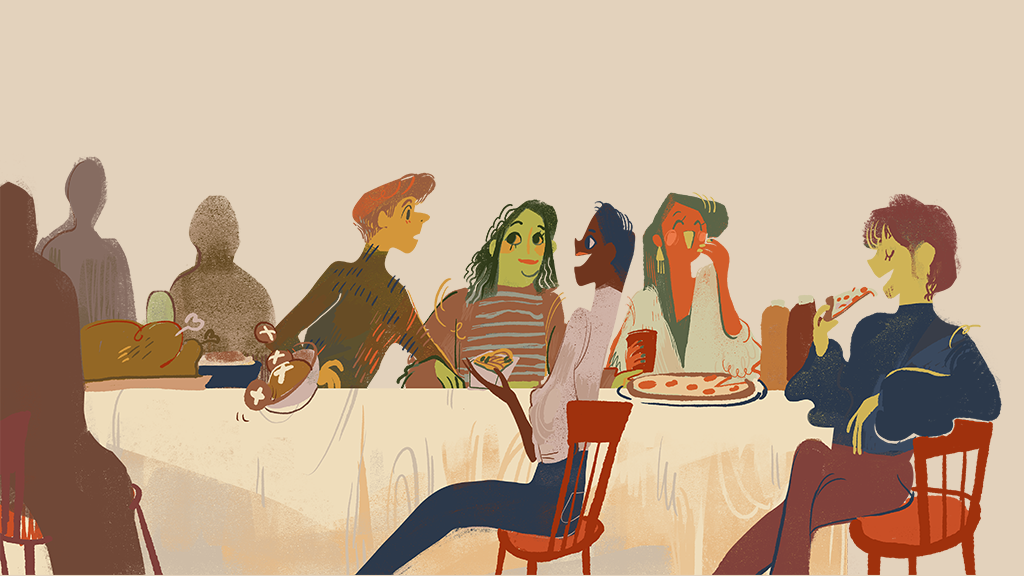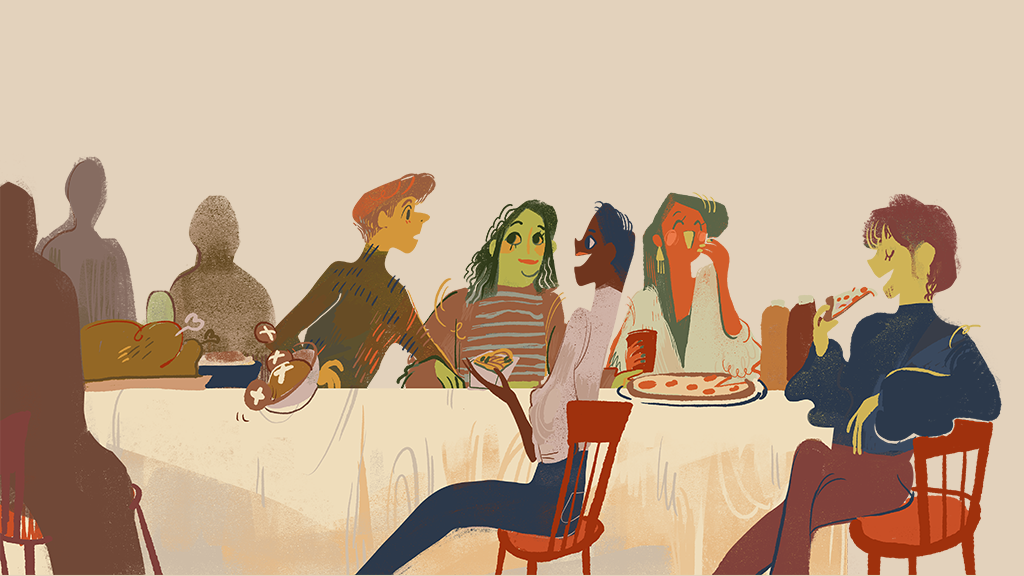Growing up, I believed that I hated my family. We fought almost every day and I never felt they understood me. It often seemed as if my parents saw me as a project rather than a member of the family — they demanded constant change and personal growth from me at such a young age. To make matters worse, nobody else seemed to have this problem. Sure, not all of my friends got along with their parents, but none of them were constantly arguing, either.
In retrospect, I was a terrible child, and that’s why we fought. They made me do chores, but now I live on my own and know how to wash my own dishes — thank you, Mom. My parents taught me a lot and I realize that now; but they still don't understand who I am. They understand the numbers of me — my SAT score, my GPA and the hours I work every week. But I am a human being, not something to be graded on a 1600-point scale. That's something only my friends seem to understand.
Why is it, then, that I was scolded every time I told someone that I found more comfort in my friendships than my family? Time and time again, I heard that “family is most important” and “nobody should come before your family.” It’s taken me 20 years to realize all of that is wrong.
Michigan State University scholars analyzed surveys that included both self-rated mental health and the strength of participants' relationships with friends and family. Overwhelmingly, the study showed that long-term happiness is far more dependent on friendships than familial relationships. My chosen family will always be more important to me than my blood.
Of course, there are members of my chosen family that I do share blood with, but I don’t love them because of that. I love them because they have stood by me year after year and shown me more than unconditional love — they've shown understanding. Family is about so much more than blood or a signature on adoption papers.
Understanding
My biological family has always loved me unconditionally, but it wasn’t enough. I wanted to be understood. I wanted someone who would know why I did the things that I did, just because they knew me so well. I found those people in high school.
"My biological family has always loved me unconditionally, but it wasn’t enough."
In my junior year of high school, a friend of mine ended his life. I returned home after nearly an hour of nonstop tears. My eyes were red, but the first thing that my mother asked me was if I had been smoking weed.
While she later apologized for making assumptions, the conversation mostly ended there. My family never understood things like depression or anxiety and, in this situation, my mother didn't really know how to act. She didn't know how to comfort me when comfort was what I needed.
What my family couldn't understand, my friend Cameron could. The night our friend passed away, Cameron invited me over to her house. We didn’t get into discussions about mental health; instead, we made dozens of pancakes and cried with one another — both over the loss of a dear friend and over our lack of syrup.
Research from the Mayo Clinic suggests that friendships are crucial in dealing with trauma. That night, Cameron and I didn’t need anything but support from one another, and that’s exactly what each of us provided.
Ultimately, that’s what friends are for. They understand what you need when it seems like nobody else does. They support you through anything, even when your blood may not.
Growing
Five years later, and so much has changed. The changes are most evident every time I return to my parents’ home. They are constantly surprised at the shifting of my mannerisms — many of which I’ve picked up from my friends.
I am still changing every day, but it is no longer at the hands of my parents. I am growing with the people I choose to surround myself with. The people I have chosen to call family, blood or not, are the ones who I want to come home to. These people have made me feel like I belong, regardless of where we are. Only my friends — my chosen family — could make me feel the sense of belonging I feel today. It doesn't matter where we are, because I'll always find more comfort in the people I'm with than in the walls surrounding me. Home is not a place, it's a people.
In an article titled "Family Dynamics during Holidays," author Claire Maisonneuve explains why it can be so stressful to return home. The article discusses differentiating, or remembering that you are allowed to be your own person. You don’t need to play the role of the malleable child anymore.
Every time we walk back into our families’ houses, we must remember we are still our own people. Through no fault of their own, our parents may revert back to old habits of treating us as children, making it difficult for many of us to feel like we’ve grown up at all. Friends have a unique ability to show you who you are through the interactions you share; whereas with family, it can be exceedingly difficult to find yourself when your parents treat you as a child.
"Every time we walk back into our families’ houses, we must remember we are still our own people."
Holidays look a little bit different for me now. There aren't as many decorations, but there's also not as much fighting. My friends and I always buy each other gifts, even if those gifts are socks from Target. Even when we have barely enough in our bank accounts to afford rent, we always make sure that everyone feels loved.
Realizing
The older I get, the more I realize that I have been choosing my family for 20 years.
I got lucky growing up how I did, but not everybody does. Family isn’t your DNA. Love, support and understanding mean more than your genetic makeup ever will. As kids, we’re taught family comes first, but that should never mean a mother or a father needs to come before a best friend.
The blood running through your veins may keep you alive, but it does not always make life worth living.









